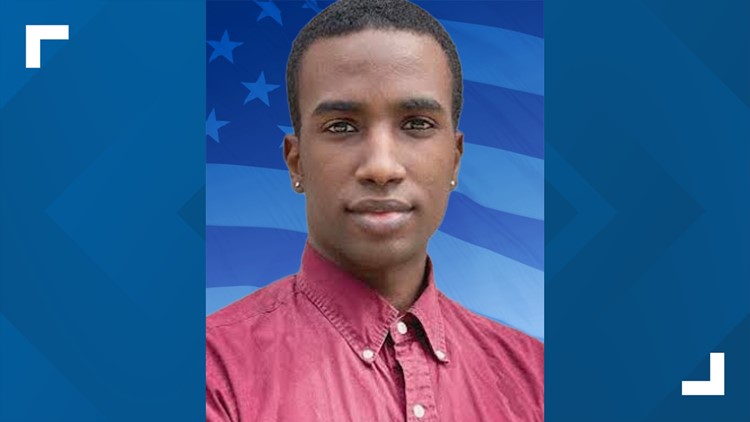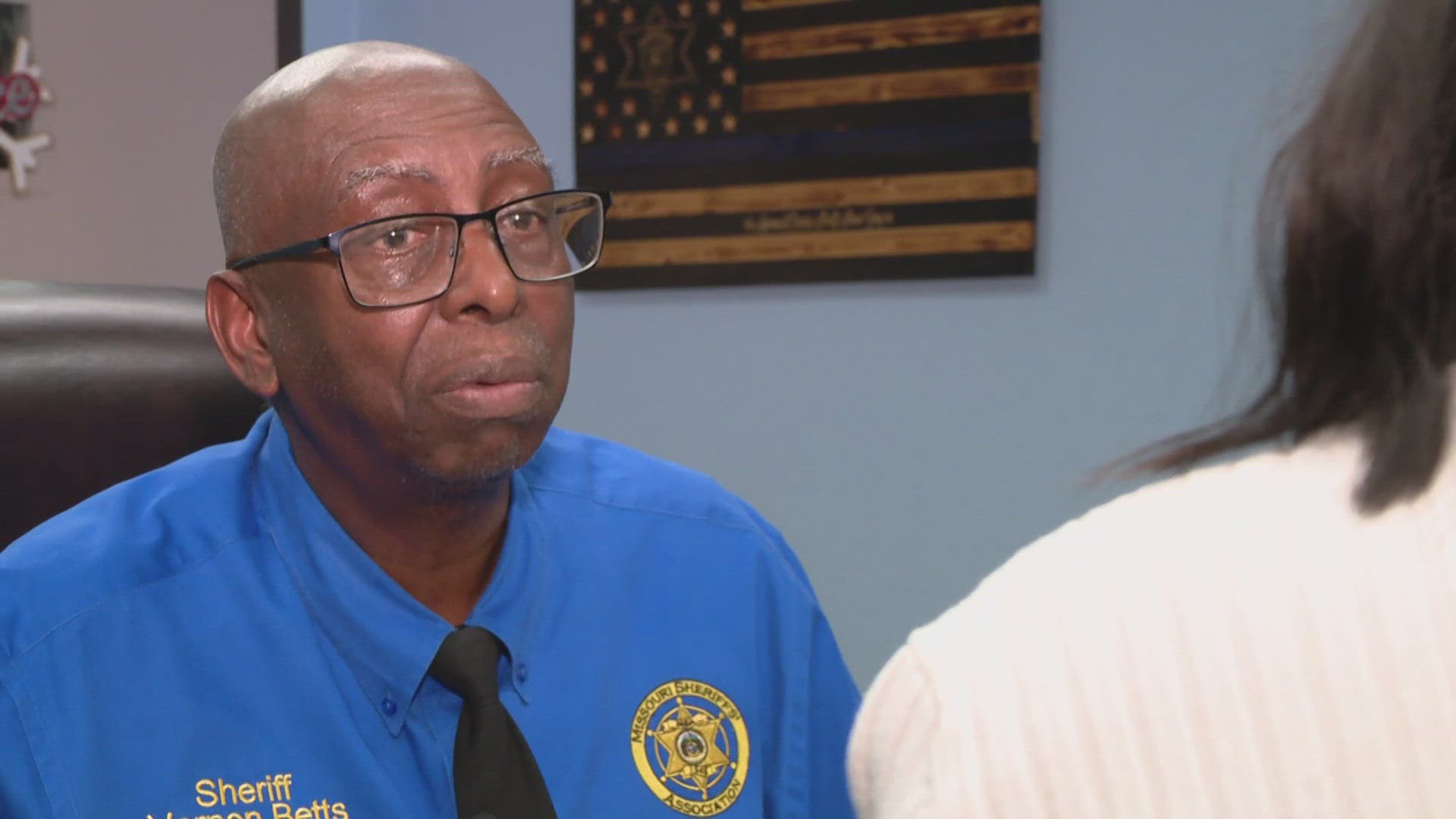ST. LOUIS — Raymond "Ray" Reed is a Democratic candidate for U.S. House of Representatives in Missouri's Second Congressional District. The primary is August 2. One Democrat will go on to face candidates of other parties in the general election in November.
Reed identified “healthcare, jobs and justice” as his platform. He believes in regulating social media to stop the spread of misinformation. From a proud union family, Reed grew up in the Brentwood area. At 25 years old, Reed is leaning into representing Gen Z in the U.S. House of Representatives.
KNOW TO VOTE: Missouri primary 2022: Voter guide for St. Louis area
He told the St. Louis American he hopes to become the first person of color to represent Missouri's Second Congressional District.
5 On Your Side candidate survey
To the extent any single member of Congress can influence the U.S. economy and labor market, what immediate steps would you take to reduce the cost of living burden Missourians face during this period of inflation?
Reed: Follow Congresswoman Cori Bush's lead on this one. We say 'Imagine how great it would be to have two members of Congress representative representing the entire St. Louis region who are working to benefit working class folks.' So, you know, I promised them day one, on labor for example, to introduce sectoral bargaining for labor unions, which really quick: Pretend that McDonald's workers were unionized and get a good contract, we could extend that good contract to Chick fil A workers and Wendy's workers and Burger King workers. It would be the largest expansion union rights since President Roosevelt's New Deal. And in additionally, you know, pumping money through the economy without printing more money. We can forgive federal student loans. You know, if you guys remember anything else from this conversation, for the cost of that tax cut in 2017 that Ann Wagner voted for, you could have forgiven every single federal student loan in the country. So people always say, 'How are you going to pay for it?' We already are paying for it. It's more of a question about priority over possibility. Ann Wagner's prioritizing Wall Street and our wealthy donors and I'm prioritizing everyday people here in the district. If I were to forgive $50,000 of student debt off your back, we could use that money to buy a house, buy a car, start a business, start a family just move on with your life. And that would be a larger return on return on investment than giving tax cuts to Wall Street.
Missouri state law prohibits women and girls from seeking abortion procedures at any time during their pregnancy, regardless of circumstances involving rape, incest, or other unwanted or unplanned pregnancies. Would you support a similar law at the federal level? If not, then which women or girls should be allowed access to safe, legal abortion procedures?
Reed: I think all women and girls, especially young girls, should be allowed access to abortion. And if I could take a little bit further on this answer, the Supreme Court has overreached their authority as a co-equal branch of our government. You know, I was in school not too long ago, and we were taught the three branches of government: Congress, the White House and the Supreme Court. They're co-equal branches of government. By stripping away the civil rights that the Supreme Court currently constituted was law of the land, they're going back on their word. So it's now up to Congress in the White House to act to codify Roe into federal law, and not just Roe, because the Supreme Court's not just stopping with that. So we also have to codify interracial marriage into law, and gay marriage into law and protect civil rights of everyday people here in America. I'd also support an impeachment inquiry into the three Trump's Supreme Court justices who lied under oath essentially, all testifying that Roe was the law of the land and the second they got into Congress, they overturned Roe. So I support impeachment inquiry into those three justices.
What do you perceive as the single greatest threat to American democracy and how would you address it in Congress?
Reed: There's not just one single greatest threat. There's a multitude of them. But the problems are exacerbated by folks like Congresswoman Ann Wagner, Republicans who know better but still feed into the same dark divisive rhetoric as the far right of the Republican Party like Donald Trump, Marjorie Taylor Greene, Lauren Boebert. You know, she spews doubt and she pushes doubt in our electoral process in our electoral system for political expediency, which, you know, we always say January 6. Donald Trump isn't. Donald Trump may have caused January 6, but Republicans have been pouring the gasoline on it that allowed him to do so he just lit the match.
To what extent do fossil fuels contribute to the changing climate? To what extent should Congressional action attempt to alter that trajectory?
Reed: It's fourth grade science. The more CO2 you have in a container, the faster it'll heat up. I support a Green New Deal, because it's the best tool we have right now to combat climate change. And I know it's ambitious, but the times we live in demand bold progressive leadership. You know, can you imagine if President Johnson said, 'Let's not push for voting rights? Let's push that to another day,' or President Roosevelt said, 'Let's not push for a New Deal during the Great Depression. Let's push that to another day.' Or President Obama said, 'Let's not stop push for health care. Let's push that out to another day.' The times we live in demand bold, progressive leadership, and that's what I intend to bring in Washington.
Public polling shows most Americans believe the U.S. Supreme Court has become too political. What reforms, if any, should Congress take to reshape or reimagine the makeup or behavior of the court?
Reed: I've been vocal in supporting a 10-year term for the Supreme Court, subject to reconfirmation by the United States Senate, so that the Supreme Court reflects America in at least that decade, rather than decades prior. And, you know, they're not going to let, like just to be completely clear, I'm going to be a freshman in the House of Representatives. They're not going to let a freshman dictate what's going to happen with the Supreme Court. But I will have a microphone and I tend to use my voice to push for impeachment of the three Trump's Supreme Court Justice picks. And as well as expanding the federal court, so it's at nine right now. I'd like to see 11, just so that the court is more representative of the country as it currently stands.
Which Constitutional amendment is your favorite and why?
Reed: The First is my favorite constitutional amendment. The point of America... so the Constitution lays a blueprint for how to make America better in order to form a more perfect union, and that First Amendment, freedom of speech, freedom for us to be vocal against our government, has always given the people that check on their government. So, you know, in 2020, we organized a bunch of young people to march on the streets for George Floyd and we saw change. It's not all the change we needed, but we moved America towards that more perfect union. So that's one constitutional amendment I love.
What is your favorite movie, most influential book, and go-to genre of music?
Reed: Drake is always playing. Love the boy from Toronto. My favorite book right now, it's a cheap plug but it's Jason Kander's Invisible Storm. You guys gotta go out and read that book. It's amazing. And the other one was favorite movie. That's a hard one. It's been not so much a movie, but a series. Two series: Stranger Things is always great on Netflix and Euphoria on HBO is a perfect telling of what so many young people in America are going through in their formative years. So I always encourage my friends to watch.



